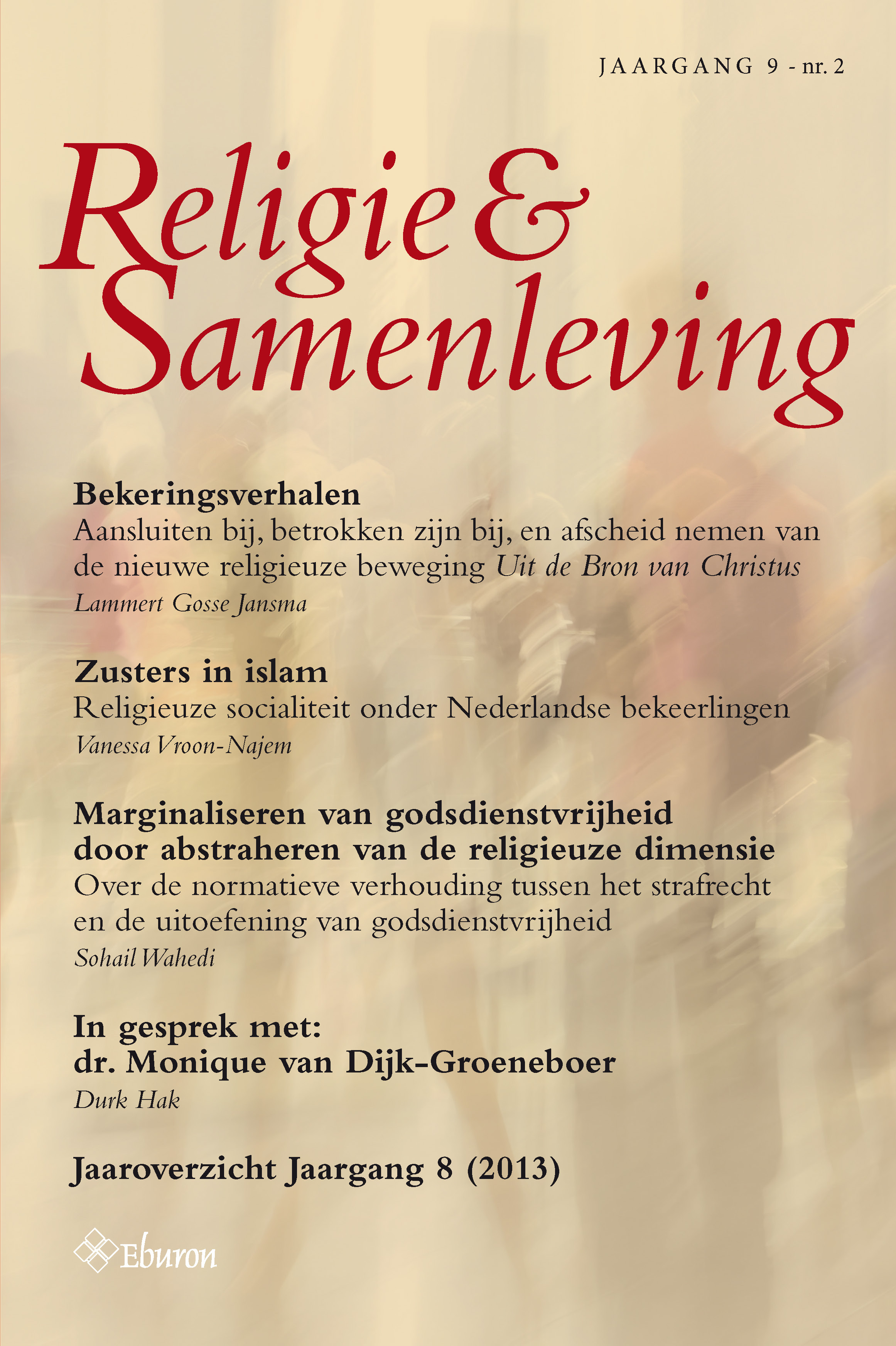Marginaliseren van godsdienstvrijheid door abstraheren van de religieuze dimensie
Over de normatieve verhouding tussen het strafrecht en de uitoefening van godsdienstvrijheid
DOI:
https://doi.org/10.54195/RS.12579Samenvatting
In modern democracies, which are characterised by separation of church and state, religious freedom is generally considered a fundamental right. In case the practice of this freedom may conflict other legal interests and human rights, there often is a call to adjust its expression, through interventions by substantive criminal law, to the ‘current’ view of a dominant majority. Applying criminal law in defining the extents of religious freedom, and protecting thereby other human rights or legal interests, indicates a particular normative relationship between criminal law and religious freedom. Today this conflict has become more emphatically visible than before, particularly with respect to authentic religious practices that are no longer considered ‘acceptable’, but rather ‘harmful’ and therefore (at least potentially) criminal. This article determines and analyses how criminal law, which, after all requires consensus and legitimacy, delineates the extents of religious freedom in modern secularised liberal societies.




